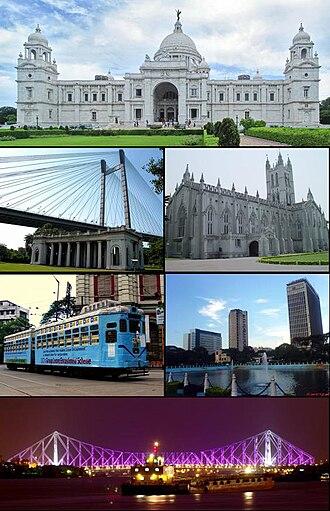Kolkata Empowered by Major Funding to Tackle Air Pollution
Kolkata has been awarded a significant grant of ₹185 crore as part of a nationwide effort targeting air pollution reduction in six major cities. This financial injection aims to bolster the city’s capacity to improve its Air Quality Index (AQI), addressing the escalating environmental concerns caused by industrial emissions, traffic congestion, and construction activities. The initiative reflects a growing recognition of the urgent need for sustainable urban development and cleaner air for millions of residents.
According to recent data from the Central Pollution Control Board (CPCB), Kolkata’s AQI frequently surpasses safe limits during peak seasons, underscoring the importance of this funding. The allocation will support diverse projects designed to mitigate pollution sources and promote healthier living conditions.
Key Focus Areas for Fund Deployment
- Expansion of Urban Green Spaces: Developing new parks and enhancing existing green belts will help absorb pollutants while increasing oxygen production.
- Advancement in Public Transportation: Upgrading fleets with electric buses and improving connectivity aims to reduce reliance on private vehicles, thereby cutting down vehicular emissions.
- Enhanced Air Quality Surveillance: Installing state-of-the-art monitoring stations across strategic locations will provide real-time data essential for responsive policy-making.
| Initiative |
Budget Allocation (₹ crore) |
Anticipated Outcome |
| Urban Greening Projects |
60 |
Sustained improvement in ambient air quality through increased vegetation cover |
| Sustainable Public Transport Development |
80 |
>< td >Lower carbon footprint via reduced fossil fuel consumption< / td >
tr >
<
tr >
<
td >Advanced Air Monitoring Infrastructure< / td >
<
td >45< / td >
<
td >Accurate tracking enabling targeted interventions< / td >
tr >
tbody >
< / table >
Strategic Approaches to Maximize Good-AQI Fund Impact in Kolkata’s Urban Landscape
The infusion from the Good-AQI fund offers an unprecedented chance for Kolkata’s urban planners and policymakers to adopt forward-thinking solutions that marry environmental health with economic vitality. Emphasizing holistic urban planning can ensure that efforts not only curb pollution but also enhance overall quality of life.
Pioneering Initiatives Driving Sustainable Change:
- Ecosystem-Based Infrastructure:
Integrating green roofs, vertical gardens, and tree-lined corridors into cityscapes can significantly filter airborne contaminants while beautifying neighborhoods.
- Catalyzing Smart Mobility:
Promoting electric vehicle adoption alongside expanding pedestrian-friendly zones encourages low-emission travel alternatives.
For instance, cities like Pune have successfully implemented e-rickshaw networks reducing local emissions by over 20% within two years.
- Civic Participation & Education Programs:
Engaging citizens through workshops, mobile apps providing AQI updates, and community-driven clean-up drives fosters collective responsibility toward cleaner air.
Recent surveys indicate that informed communities are more likely to adopt eco-friendly habits such as carpooling or waste segregation.
The integration of cutting-edge technology is vital for optimizing these initiatives. Deploying IoT-enabled sensors across neighborhoods allows continuous monitoring with granular accuracy—facilitating swift responses during pollution spikes. Additionally, incentivizing solar panel installations on residential rooftops aligns energy consumption patterns with sustainability goals.
| Tactical Element |
Description & Benefits
Description & Benefits
>
>
>
>
>
>
>
> th >
|
IOT-Powered Digital Monitoring Systems
This involves deploying interconnected sensors throughout key areas in Kolkata which continuously track pollutant levels such as PM2.5/PM10 gases like NOx/SOx providing authorities actionable insights.
br /> br />Real-time alerts enable timely interventions minimizing exposure risks especially among vulnerable populations.< br /> br />This approach mirrors successful deployments seen recently in Singapore where similar systems helped reduce hazardous episodes by nearly 30% within one year.
< br />< br />
t d >
| < b >Renewable Energy Integration< b >< b >< b >< b >< b >Encouraging installation of solar panels on rooftops across residential/commercial buildings reduces dependence on fossil fuels lowering overall carbon emissions.< br />< br />Government subsidies combined with public-private partnerships can accelerate adoption rates.< Br />< Br />For example, India’s solar PV capacity grew over 25% annually between 2020-2023 according to IEA reports demonstrating strong momentum towards clean energy transition.
< Br />< Br />
| Civic Awareness CampaignsUtilizing social media platforms alongside traditional outreach methods educates citizens about health impacts related to poor air quality encouraging behavioral changes such as reduced open burning or increased use public transport.
Community-led initiatives foster ownership ensuring sustained engagement beyond initial project phases.
Recent studies show awareness campaigns increase participation rates up to 40%, amplifying effectiveness when combined with infrastructural improvements.
|
Collaborative Efforts Key To Sustained Air Quality Progress In Kolkata
The ₹185 crore grant highlights not only governmental commitment but also emphasizes multi-sectoral cooperation as essential for meaningful progress against air contamination challenges facing Kolkata today. Success hinges upon active involvement from municipal authorities, private enterprises investing in green technologies, NGOs championing environmental causes along with empowered citizenry participating at grassroots levels.
A unified framework involving regular stakeholder consultations ensures transparency around fund utilization while fostering innovation through shared expertise. For instance,Frankfurt’s model combining government incentives plus community-driven projects has yielded measurable reductions in particulate matter concentrations over five years offering valuable lessons applicable locally.
This collaborative spirit should extend towards establishing robust public-private partnerships aimed at financing sustainable infrastructure upgrades including electrification of bus fleets or retrofitting factories with emission control devices—measures critical given that transportation accounts for approximately 35% of urban pollution sources per latest CPCB statistics.
A concerted push towards stricter enforcement mechanisms coupled with incentives promoting cleaner alternatives will be indispensable components ensuring long-term success beyond immediate funding cycles.
Kolkata’s Pathway To Cleaner Air And Healthier Living: A Forward-Looking Perspective
In summary,the allocationof ₹185crore forthe enhancementofairqualityinKolkatarepresentsamajormilestoneinthecity’seffortstocombatpollutionandprotectpublichealth.Asoneofthechosenurbancenters,thisfundwillenableimplementationofcomprehensiveinitiativesrangingfromgreeningprojectsandtransportmodernizationtoadvancedmonitoringsystemsandcommunityengagement.Withurbanpopulationsprojectedtogrowbyover30percentinthecomingdecadeaccordingtoUNdata,itisimperativethatcitieslikeKolkataleadthetransitiontowardsenvironmentallyresponsibledevelopmentmodels.TheoutcomesherecouldserveasblueprintsforotherIndianmetrosstrugglingwithsimilarchallenges.Ultimately,thisendeavoraimstoensurethatfuturegenerationsinheritacleaner,saferecosystemwherequalityoflifecontinuesimprovingamidrapidurbanization.
